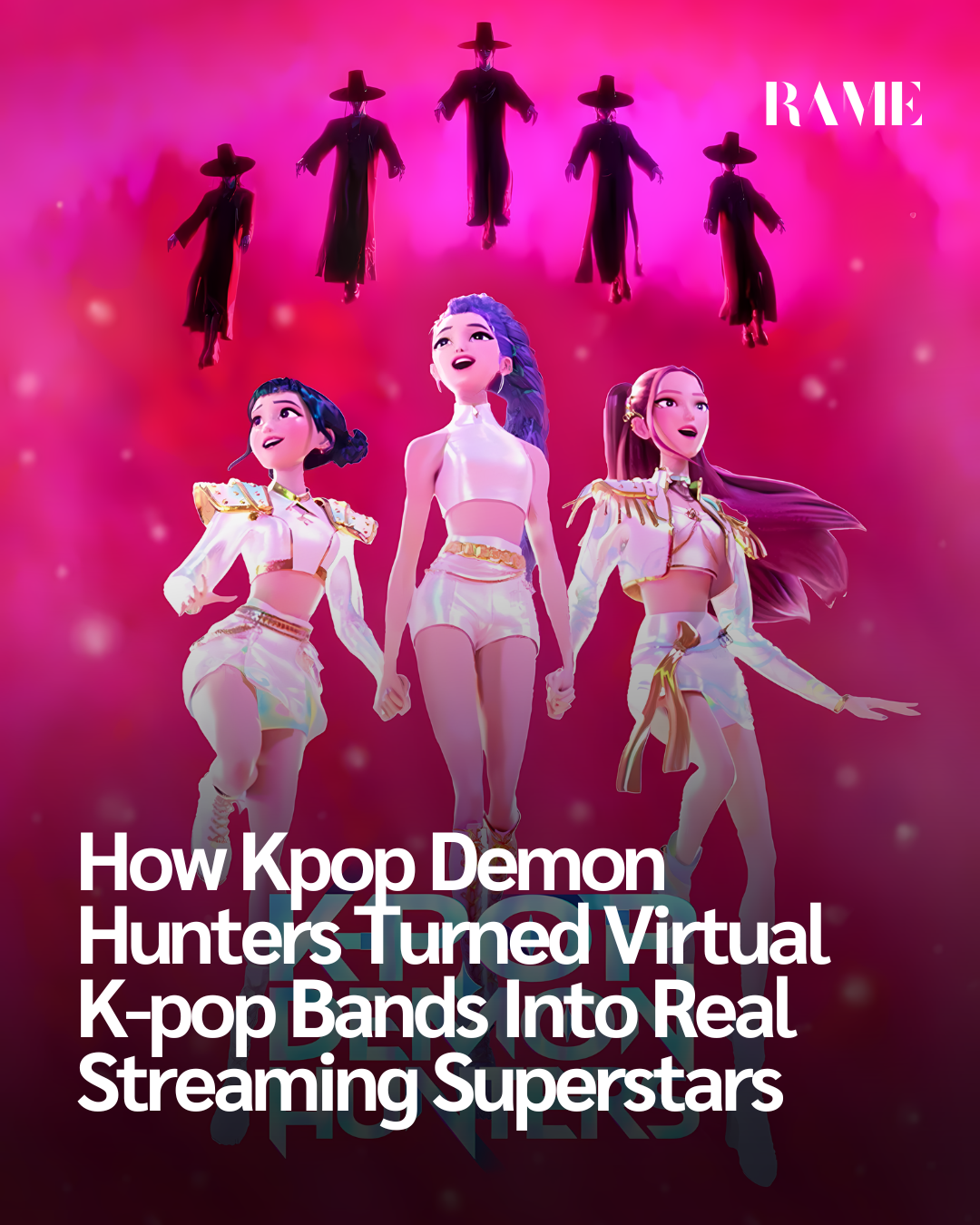The idea of a pop group that never sleeps, never ages, and never misses a beat might sound like science fiction. But that future is already here and it’s streaming on Netflix.
Kpop Demon Hunters, an animated film that mashes up supernatural action with high-gloss pop idol fantasy, is not just topping Netflix charts. The fictional girl group HUNTR/X and their in-film rivals Saja Boys are now dominating Spotify’s real-world charts too. Behind it all is Netflix CEO Ted Sarandos, who sees more than a movie hit he sees the future of pop culture.
Virtual Artists, Real Numbers
Let’s get specific. As of July 23, Golden, a song by the fictional girl group HUNTR/X, hit No. 1 on Spotify’s US Top 50, with 1.73 million daily streams. Right behind it: Your Idol by Saja Boys, clocking 1.49 million.
In total, seven songs from Kpop Demon Hunters are in the US Top 25 on Spotify. That’s not just impressive it’s unprecedented. Virtual bands have flirted with mainstream appeal before (see: Gorillaz or League of Legends’ K/DA), but nothing has cracked into everyday music listening at this scale.
The film, produced by Sony Pictures and streaming exclusively on Netflix, racked up 25.8 million views in a single week. That’s not just a hit. That’s a cultural flashpoint.
Netflix’s New Animation Play
On Netflix’s Q2 earnings call, CEO Ted Sarandos made it clear this wasn’t a happy accident. He framed Kpop Demon Hunters as part of a larger bet on original animation and music.
“The mix of music and pop culture, getting it right matters,” Sarandos said. “The storytelling matters. The innovation and animation itself matters… and the fact that people are in love with this film and in love with the music from this film will keep it going for a long time.”
He went further, pointing to the enormous streaming success of songs like Golden and Soda Pop as proof that Netflix can create hit songs and IP without going near a tour bus. “We’re really excited that we can pierce the culture with original animated features, considering that folks have been poking us on it,” he said.
Behind the Fiction: Real Talent
These songs may be performed by animated characters, but the vocals are anything but synthetic. HUNTR/X is voiced by a lineup of genuine talent: R&B artist Audrey Nuna, producer-singer Ejae (who has worked with aespa, LE SSERAFIM, and TWICE), and Seoul-born singer-songwriter Rei Ami.
Saja Boys’ lineup includes Andrew Choi, signed to SM Entertainment, and Kevin Woo, a singer-actor under FC ENM and former member of K-pop boy band U-KISS.
Woo, speaking to The Wall Street Journal, called the project a personal reinvention. “For me, in a sense, it’s like a reinvention of my artistry,” he said. His virtual persona, Mystery Saja, might even eclipse his earlier career in some fans’ eyes and he’s okay with that.
K-pop Meets AI and Likes What It Sees
The rise of Kpop Demon Hunters plays into a broader shift in how the music industry and especially K-pop views virtual and AI-generated acts. Earlier this month, RAME reported on the growing number of AI-generated artists popping up on streaming platforms. But the idea of virtual stars isn’t new; it’s just finally found a mainstream pipeline.
“This is a long-running dream for K-pop companies,” said Suk-Young Kim, professor at UCLA, speaking to The Wall Street Journal. “Here we have idols who never sleep, never get sick, never age.”
And that dream seems to be resonating with fans. According to The Korea Times, K-pop idols are embracing the trend, releasing covers of movie tracks. One example? NMIXX’s Lily, whose cover of Golden has already pulled in 10 million views on TikTok.
Even BTS’s Jung Kook is on board. In a livestream on Weverse, he admitted the film brought him to tears.
What This All Means for the Future of Pop
Here’s the thing: music fandom is changing. In a world where artists are increasingly dependent on tours (because streaming revenue just doesn’t cut it), fictional acts with real emotional punch are starting to offer a viable, and scalable, alternative.
For K-pop especially, this shift could be seismic. The genre has always been about more than music it’s choreography, fashion, storytelling, emotional connection. If a fictional band can deliver all of that without the burnout, scandals, or military service delays, why wouldn’t labels pursue it?
Of course, this doesn’t mean the end of real-life stars. But it does mean the definition of an “artist” is expanding fast and fans seem eager to come along for the ride.



